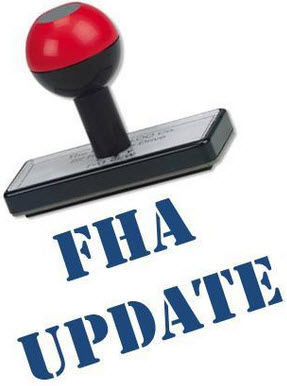
In the United States, an FHA insured mortgage loan is insured by the Federal Housing Administrating (FHA), a governmental agency created during the Great Depression of the 1930’s.
An FHA insured mortgage loan, commonly known simply as an FHA loan or FHA house loan, is intended to help prospective home owners to obtain a mortgage from a bank even though their income is low. The FHA loan can for instance save the day for a person who doesn’t qualify for standard private mortgage insurance (PMI).
- The FHA mortgage insurance program encourages lenders to lend money to borrowers that fail to meet the lender’s normal standard underwriting requirements.
- The FHA mortgage insurance program makes mortgage loans more affordable for prospective home owners since lenders are willing to accept a lower interest rate when the loan is insured.
Can I borrow money from the FHA to buy a home?
No, the FHA doesn’t lend money. Instead, they have a loan insurance program that can help make a mortgage lender, such as a bank, accept your loan application. By insuring the loan, the FHA shelters the lender from the risk of you not paying back the loan in accordance with the repayment plan. The FHA mortgage loan insurance can also help reduce the cost of your mortgage loan, since you become less of a liability to the lender.
How can I get an FHA insured mortgage loan?
 The first step is to contact the U.S. Department of Housing and Urban Development to obtain information about their current rules regarding FHA insured mortgage loans. They will also be able to provide you with contact information for FHA-approved lenders.
The first step is to contact the U.S. Department of Housing and Urban Development to obtain information about their current rules regarding FHA insured mortgage loans. They will also be able to provide you with contact information for FHA-approved lenders.
Once you have a list of FHA-approved lenders, contact several of them and ask them for offers. FHA-approved lenders are private entities setting their own interest rates, so the cost of a mortgage loan can vary significantly between two lenders. Other terms and conditions can also vary, so shopping around and obtaining multiple offers is strongly recommended.
With most FHA-approved lenders, you can expect to be offered much lower interest rates if your FICO score is 640 or above than if it is below this threshold.
Do I have to pay for the FHA insurance?
Yes, the FHA mortgage loan insurance is not free for the borrower, and you will pay an insurance premium based on declining balances.
At the time of writing, the insurance premium is 0.5% on declining balances.
Mandatory application waiting periods
You can be approved for a FHA loan even after a foreclosure, deed-in-lieu or short sale, but there is a mandatory 3 year applicants waiting period.
After a Chapter 7 or Chapter 13 bankruptcy, there is a 2 year application waiting period.
Non-Occupying Co-Borrower
If you are a first-time home buyer, and need a co-borrower to be approved for your FHA loan, the FHA can elect to permit a co-borrower to co-sign for the loan even if that co-borrower wont be living with you in your new home.
Do the non-occupying co-borrower have to be a relative of the main borrower?
No, there is no such requirement.
Can I get an FHA loan to buy a home outside the United States?
No, FHA insured mortgage loans are only available in the USA.
Background: About the Federal Housing Administration
During the Great Depression of the 1930s, the harsh economic times made it difficult for many people in the United States to realize their dreams of becoming homeowners. For many families, even renting a house or apartment of reasonable health- and safety standards proved a challenge.
Against this background, the National Housing Act of 1934 was passed, creating the Federal Housing Administration (FHA). The FHA had several different tasks to accomplish, including these two:
- Promoting the building of residential properties.
- Operating loan insurance programs.
Throughout the 20th century, FHA were given more and more tasks, including the administration of interest rate subsidies and rent supplement programs. In the 1980’s, a FHA rental subsidy program was launched for middle-income households. In the wake of the 2007 sub-prime mortgage financial crisis, a FHA administered refinancing program was created to help home owners prevent foreclosure.
